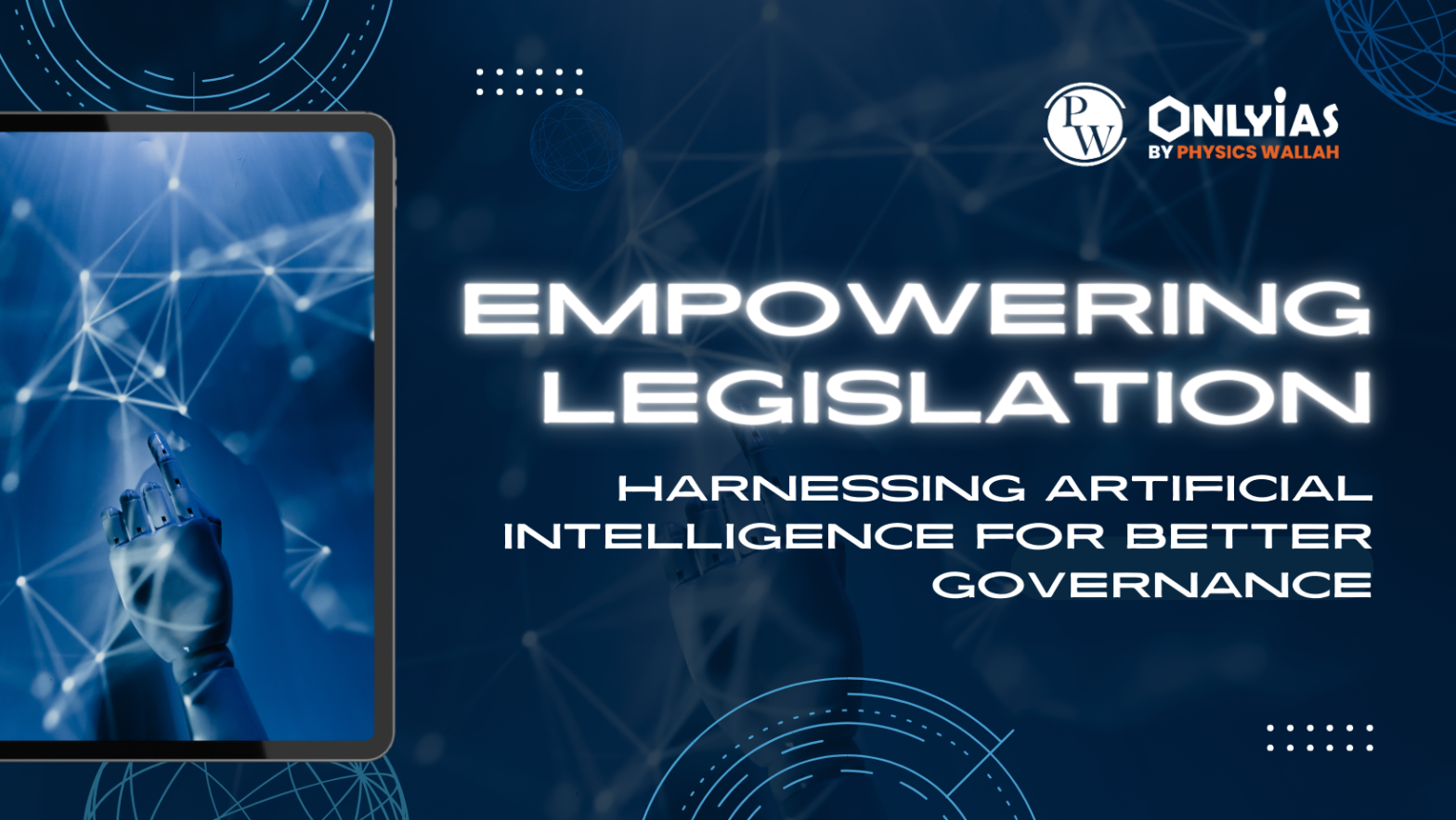Context: This article is based on an Editorial “Directing AI for better and smarter legislation” which was published in The Hindu. Artificial Intelligence (AI) is attracting the attention of entrepreneurs, political leaders, and policymakers the world over.
| Relevancy for Prelims: Artificial Intelligence in Legislation and usage across the World and National e-Vidhan (NeVA) Portal.
Relevancy for Mains: Role of Artificial Intelligence in Legislation. |
Artificial Intelligence (AI) in Legislation and Parliamentary Procedures:
- Usage across the World: Most mature democracies are now using AI tools for better pieces of legislation and parliamentary procedures.
- United States: The House of Representatives has introduced an AI tool to automate the process of analyzing differences between Bills, amendments and current laws.
- Netherlands: The House of Representatives has implemented the “Speech2Write” system which converts voice to text and also “translates” voice into written reports.
- Japan: AI tool assists in the preparation of responses for its legislature and also helps in the automatic selection of relevant highlights in parliamentary debates.
- Brazil: Developed an Artificial Intelligence system called Ulysses which supports transparency and citizen participation.
- Assistance Provider: Artificial Intelligence tools can assist parliamentarians in preparing responses for legislators, enhancing research quality, obtaining information about any Bill, preparing briefs, providing information on particular House rules, legislative drafting, amendments, interventions, etc.
- It can also assist parliamentarians in seeking citizen inputs for public consultation of laws and preparing a manifesto.
- Informed Decisions: They can also empower legislators to make informed decisions by having access to insights into citizen grievances, media opinions, and voices of citizen-centric associations.
Scenario In India:”Artificial Intelligence in Legislation: Codification and Innovation in India”
- Steps Taken: India is also innovating and working towards making parliamentary activities digital such as the ‘One Nation, One Application’ and the National e-Vidhan (NeVA) portal.
- Significance: AI can simulate the potential effects of laws.
- Various datasets such as the Census, data on household consumption, taxpayers, beneficiaries from various schemes, and public infrastructure can be modeled.
- Challenge: Current laws are opaque, complex and there is a huge translation gap between law-making, law-implementing and law-interpreting organizations.
- Steps need to be Taken: For Artificial Intelligence to work in India, we first need to codify our laws.
- The interface should contain a complete chain, right from the parent Act to the subordinate pieces of legislation passed by the central government and the amendment notifications, enabling any entity to get a 360° view.
Conclusion:
- The COVID-19 pandemic accelerated Digital India, urging increased digitization. Sustaining this momentum is vital, especially in law, policy-making, and parliament.
- AI is a powerful tool, but at the end of the day, we should be mindful of the fact that it is a means to an end and not an end in itself.
![]() 22 Sep 2023
22 Sep 2023
